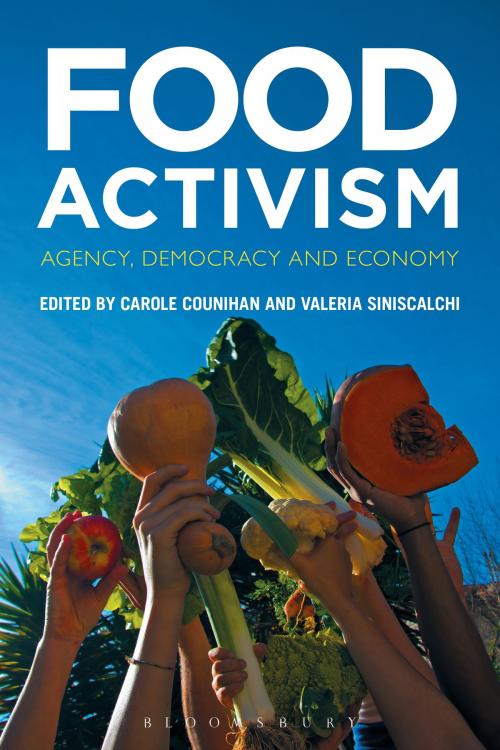| Author: | ISBN: | 9780857858344 | |
| Publisher: | Bloomsbury Publishing | Publication: | December 5, 2013 |
| Imprint: | Bloomsbury Academic | Language: | English |
| Author: | |
| ISBN: | 9780857858344 |
| Publisher: | Bloomsbury Publishing |
| Publication: | December 5, 2013 |
| Imprint: | Bloomsbury Academic |
| Language: | English |
Across the globe, people are challenging the agro-industrial food system and its exploitation of people and resources, reduction of local food varieties, and negative health consequences. In this collection leading international anthropologists explore food activism across the globe to show how people speak to, negotiate, or cope with power through food.
Who are the actors of food activism and what forms of agency do they enact? What kinds of economy, exchanges, and market relations do they practice and promote? How are they organized and what are their scales of political action and power relations? Each chapter explores why and how people choose food as a means of forging social and economic justice, covering diverse forms of food activism from individual acts by consumers or producers to organized social groups or movements. The case studies embrace a wide geographical spectrum including Cuba, Sri Lanka, Egypt, Mexico, Italy, Canada, France, Colombia, Japan, and the USA.
This is the first book to examine food activism in diverse local, national, and transnational settings, making it essential reading for students and scholars in anthropology and other fields interested in food, economy, politics and social change.
Across the globe, people are challenging the agro-industrial food system and its exploitation of people and resources, reduction of local food varieties, and negative health consequences. In this collection leading international anthropologists explore food activism across the globe to show how people speak to, negotiate, or cope with power through food.
Who are the actors of food activism and what forms of agency do they enact? What kinds of economy, exchanges, and market relations do they practice and promote? How are they organized and what are their scales of political action and power relations? Each chapter explores why and how people choose food as a means of forging social and economic justice, covering diverse forms of food activism from individual acts by consumers or producers to organized social groups or movements. The case studies embrace a wide geographical spectrum including Cuba, Sri Lanka, Egypt, Mexico, Italy, Canada, France, Colombia, Japan, and the USA.
This is the first book to examine food activism in diverse local, national, and transnational settings, making it essential reading for students and scholars in anthropology and other fields interested in food, economy, politics and social change.















